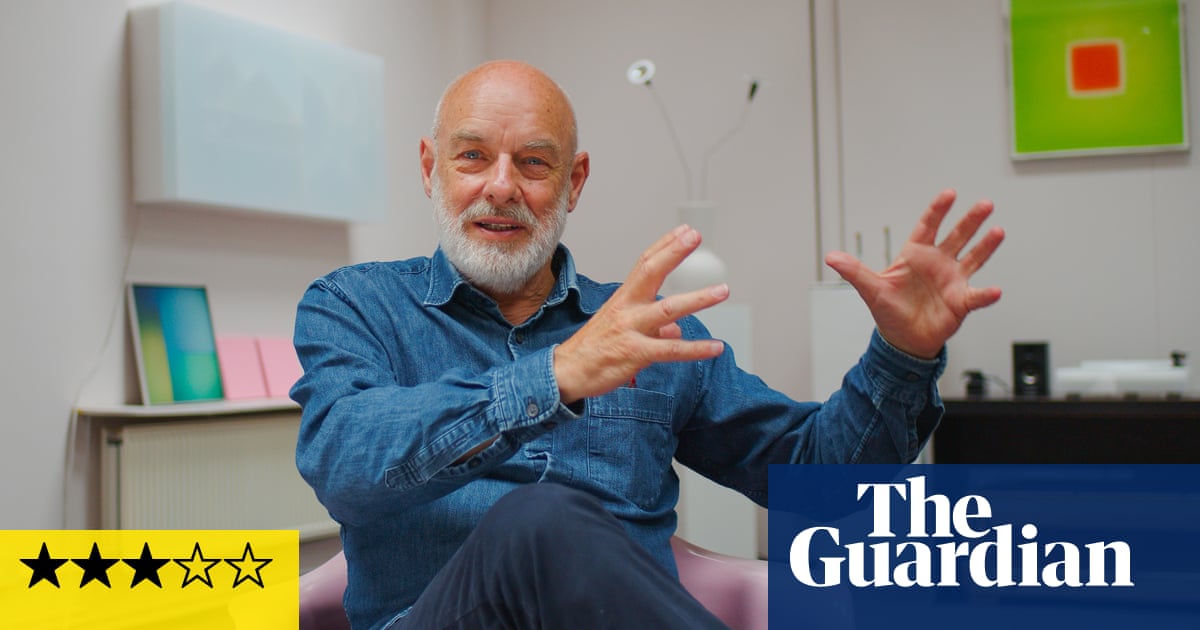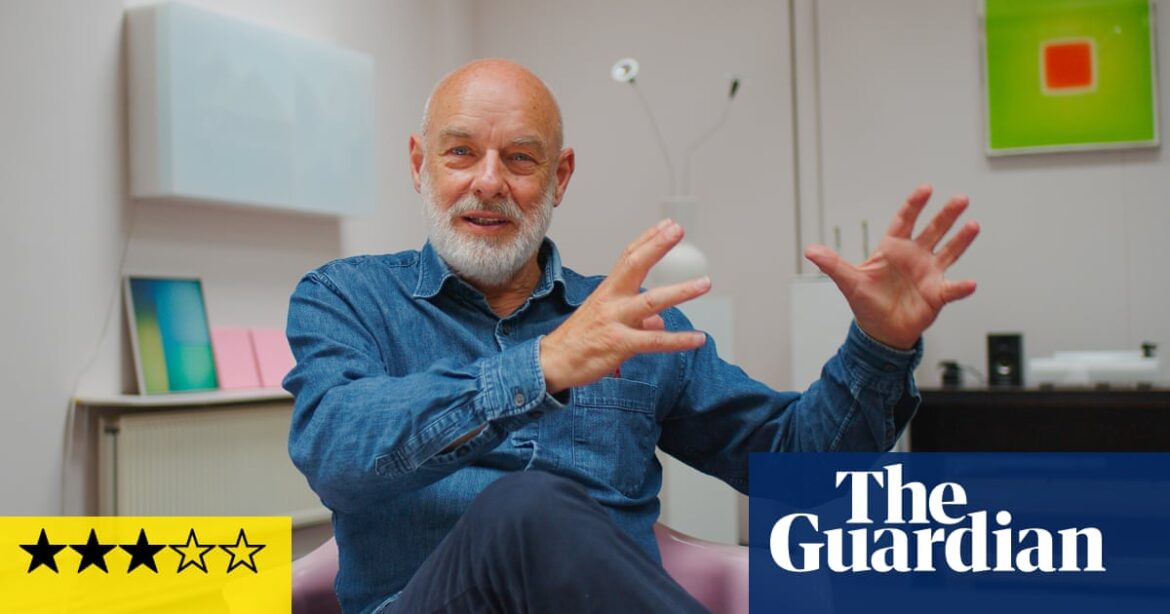
If anyone could get away with presenting a “generative documentary” rather than a bog-standard bio-doc, it would have to be Brian Eno, the high priest of art-tech experimentalism. This film promises to be different every time it’s shown, thanks to software that randomly selects different scenes (with bleepy, glitchy little interludes to remind us what’s it’s doing). The gimmick is entirely on-brand for Eno, who has been dabbling in generative music (music determined by a preordained set of parameters, that never repeats itself) since the 1990s, and who has never met an artistic process he couldn’t question, dismantle and rearrange in a novel way. From his early days gilding Roxy Music with a futuristic edge, to his avant garde solo works, to his production duties on classic albums by the likes of David Bowie, U2 and Talking Heads (no mention of Coldplay here), he’s always been an explorer, as this pick’n’mix doc accentuates.
Directed by Gary Hustwit (best known for typography doc Helvetica) it’s less an intimate character study and more a “the world according to”; a scrapbook of scenes from Eno’s extensive video archives mixed in with footage of Eno in his home studio and garden in rural England, and his scattershot analytical musings on art and life. “Why do we like music?” for example, or “The human brain has shrunk by about 15% in the past 20,000 years” – but he’s actually funnier and more self-deprecating than he comes across on paper. After dropping the typically Eno-esque revelation that he stopped eating breakfast to enhance his creative process (“output before input”), he immediately admits that he’s starving and can’t wait till lunch.
But it’s in the archive footage where this film really comes alive, especially when we see him working and performing with others. There’s some great footage of U2 building their 1984 song Pride (In the Name of Love) in the studio, with young Bono scat-improvising melodies to see what works. It’s similarly revelatory seeing him in the studio with Bowie during their mythical Berlin days (“I don’t really know what he does,” says Bowie). Or there’s an amusing vintage anecdote about how Eno contrived to urinate in Marcel Duchamp’s priceless Fountain readymade, thus negating its status as a work of art. None or all of these could be in the version you get to watch, mind you.
Seeing Eno in contrast to the artists he’s worked with accentuates just what a singular niche he’s carved out for himself. He’s too analytical and controlled to really be a fount of raw self-expression, yet he has worked miracles helping others express themselves – not just by knowing which knob to twiddle on the mixing desk but also by thinking deeply about the creative process (Laurie Anderson reads a few of his celebrated Oblique Strategies here and there). You could almost call him a meta-artist. And this is his meta-documentary; it is not, ultimately, as radical as it purports to be, or as revealing as it could have been perhaps (some external viewpoints would have been welcome), but stimulating and cerebral all the same.
Source: theguardian.com



